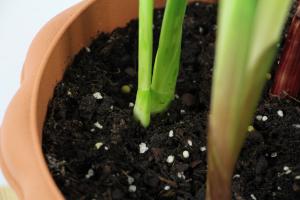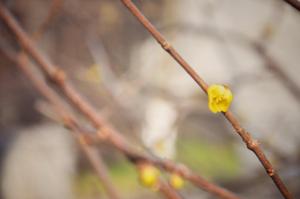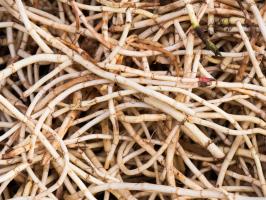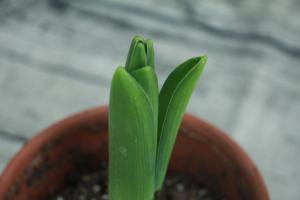Introduction
Strawberries are a popular fruit that are often grown in pots as they are easy to maintain and harvest. However, strawberry plants in pots are prone to mold growth, which can reduce their yield and eventually kill the plants. In this article, we will explore the factors that contribute to mold growth on strawberry plants in pots.
Poor Drainage
One of the main causes of mold growth in pots is poor drainage. When the soil in the pot does not drain properly, excess water can accumulate at the bottom of the pot, creating a moist environment that is ideal for mold growth. To prevent this, ensure that the pot has sufficient drainage holes at the bottom and use a well-draining potting mix.
Overwatering
Overwatering is another common cause of mold growth on strawberry plants in pots. When the soil is too wet, it becomes a breeding ground for mold spores. To prevent overwatering, water your strawberry plants only when the topsoil feels dry to the touch. Additionally, avoid watering the leaves and flowers, as this can also promote mold growth.
Poor Air Circulation
Poor air circulation can contribute to mold growth on strawberry plants in pots. When the plants are crowded together or placed in an area with limited airflow, the moisture in the air can become trapped, creating a damp environment that is conducive to mold growth. To prevent this, space out your plants and ensure that they are placed in an area with good ventilation.
Humidity
High humidity can also contribute to mold growth on strawberry plants in pots. When the air is humid, it can create a moist environment that is ideal for mold spores to grow. To reduce humidity, you can use a dehumidifier or place a fan near your plants to increase air circulation.
Fungal Diseases
Finally, fungal diseases can also cause mold growth on strawberry plants in pots. Common fungal diseases that affect strawberries include powdery mildew and gray mold. To prevent these diseases, ensure that your plants are not overcrowded and avoid watering them from above. Additionally, you can use a fungicide to treat any existing fungal infections.
Conclusion
Mold growth on strawberry plants in pots can be a frustrating problem for gardeners. However, by addressing the factors that contribute to mold growth, such as poor drainage, overwatering, poor air circulation, humidity, and fungal diseases, you can prevent and treat mold growth on your strawberry plants, helping them thrive and produce a bountiful harvest.

 how many times do yo...
how many times do yo... how many planted tre...
how many planted tre... how many pine trees ...
how many pine trees ... how many pecan trees...
how many pecan trees... how many plants comp...
how many plants comp... how many plants can ...
how many plants can ... how many plants and ...
how many plants and ... how many pepper plan...
how many pepper plan...































